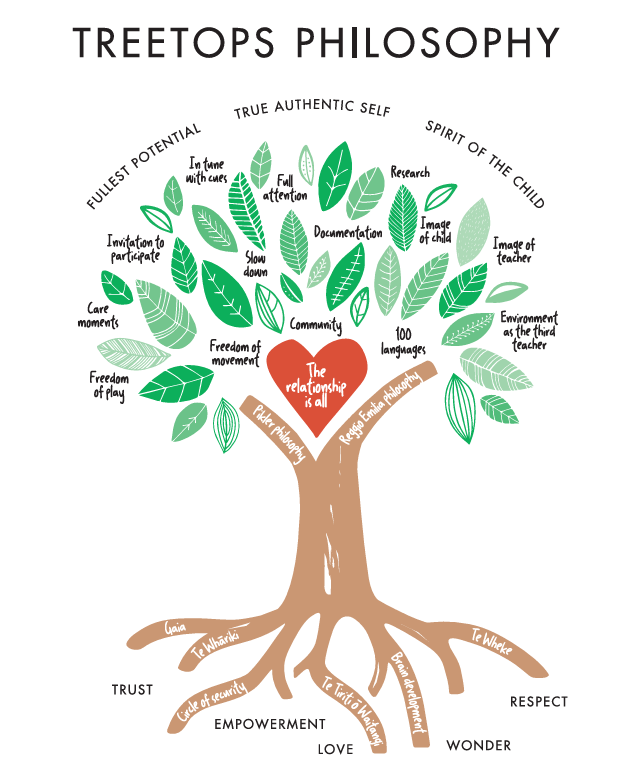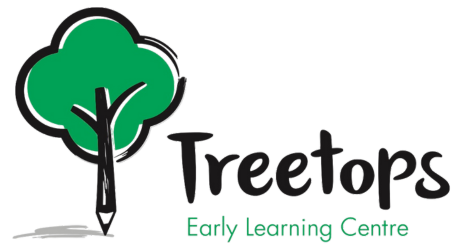Our philosophy is the corner stone of our centres. Our Ormiston, Botany and Pukekohe daycare centres follow this philosophy to guide our practise. This is what sets us apart from the other childcare services, preschools or kindergartens in Auckland.

Our Mission Statement
- At Treetops Early Learning Centre, our mission is to make learning fun.
- For your child to find their passion all while they are in a safe and loved environment.
- You’ll find that your child will quickly build positive and open relationships with the other children and teachers.
- We value open and frequent communication with parents and whānau, and encourage families to become involved in their children’s learning.
Our Values
- Treetops is a multicultural centre; we actively celebrate the different cultures of our families and teachers.
- Your child can feel at ease because we encourage them to have a voice in their learning journey with us. They are active participants in their own learning.
- Trust is at the centre of building relationships with your child. The best learning outcomes occur when a child feels safe and secure. Because children know that they are safe and loved at Treetops, they learn to trust and to become trustworthy themselves.
- Kotahi te kākano, he nui ngā hua o te rākau. A tree comes from one seed but bears many fruit (Ministry of Education, 2016)
Our Guiding Principles
At Treetops Early Learning Centre, our teaching is inspired by the Reggio Emilia educational philosophy and the Pikler philosophy. Our practice is based on the principles of Te Whariki (The Early Childhood Curriculum) which addresses wellbeing, belonging, contribution, communication, and exploration.
- The Reggio Emilia approach focuses on each child as a competent learner. Children are curious, creative, and full of potential. Our approach at Treetops is child-centred and our curriculum focuses on inquiry learning.
- Learning respect and responsibility through discovery and play are essential elements in Reggio Emilia. We believe that children have rights and should be given appropriate responsibilities and opportunities to develop their potential.
- The Reggio Emilia approach believes that children have a ‘hundred languages’ to use in communication and learning. These ‘languages’ could be drama, sculpture or painting and children express needs, interests, and abilities using a variety of creative and fun ways.
- The learning environment is the third ‘teacher’ where children get to explore their ideas, test their theories, question, observe, and clarify their understanding of the world.
- Our children are encouraged to make sense of their world in their own way, at their own time.
- We honour Te Tiriti O Waitangi as the foundational document of Aotearoa by actively promoting Tikanga Maori and Te Reo Maori in our planned experiences.
Our teachers are constantly engaged in on-going professional development to ensure high-quality teaching practices that offer the best outcomes for your child.
References
- Edwards, C. Gandini, L, & Forman, G. (1998). The hundred languages of children: The Reggio Emilia approach – advanced reflections (2nd ed.). Greenwood.
- Gandini, L. (1993). Fundamentals of the Reggio Emilia Approach to Early Childhood Education. Young Children. 49:1, 4-8
- Hewett, V.M. (2001). Examining the Reggio Emilia approach to early childhood education. Early Childhood Education Journal. 29, 95–100. https://doi.org/10.1023/A:1012520828095
- Ministry of Education (2016). Te whariki: Early childhood curriculum. www.education.gov.nz
